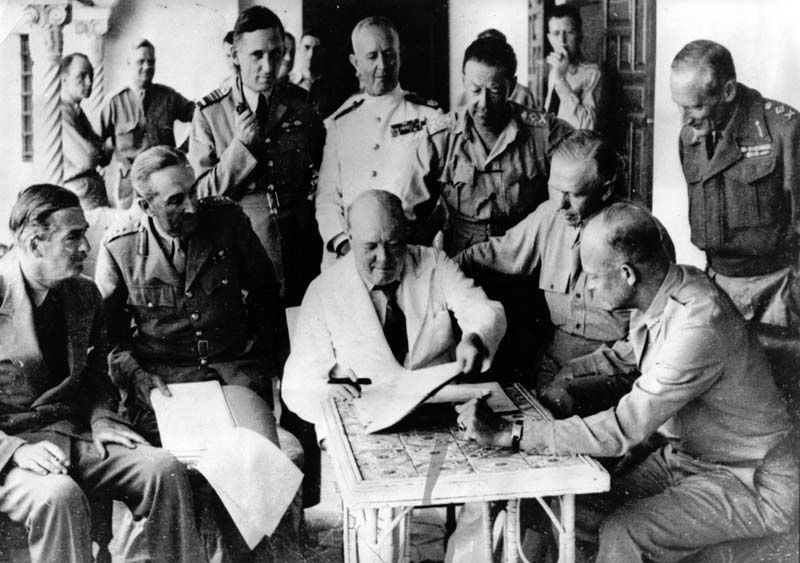Behavior 1: Churchill Built a Strong Organization
of Capable People
Churchill clearly understood that he could not do it alone. Having fought in previous wars, having been involved in public service most of his life, and having seen the f ailures of others, Winston Churchill knew that his job was to influence others.
ailures of others, Winston Churchill knew that his job was to influence others.
From the outset, Churchill strove to be influential rather than dictatorial. He constructed a team of military and civilian personnel whose values were aligned, and who were clearly focused on a singular goal—defeating Nazi Germany. Churchill clearly understood that flexibility was needed, that it was necessary to fight the battle. Just as he understood that his country and his military needed to be flexible and innovative, Churchill understood that he needed to be flexible and innovative in his leadership style.
Churchill understood that in order to be effective, he would have to delegate some decision-making; he had to build an organization that made decisions following policy and logic. In order to do that he had to build trust—he had to build his own trust in the team’s ability, trust among the team members, and the team’s trust in him. To that end, he never forced his decisions on the team. If his team opposed any initiative he proposed, he would quickly abandon the idea. He never overruled the collective will of the top leadership of his team. That did not mean that Winston Churchill was a wallflower; he could be emphatic with his demands, and at times the forcefulness of his arguments would win over the team. But he always depended upon his powers of persuasion to influence, and never dictated what the outcome should be.
Churchill was innovative in his approach to how the war was managed and led. Having watched the failures of the British leaders in WWI, Churchill clearly understood that a new leadership dynamic was needed to ensure victory. So Churchill created new positions, new departments, and new ideas. He encouraged others to think of new ideas and new methods, all in an effort to bring more resources to focus on the situation. These new departments and positions brought new vision and insight to the war effort and created an atmosphere in which the entire country was dedicated to the singular goal of defeating Nazi Germany.
Another innovation was that some of these new departments reported directly to the Prime Minister and not through the traditional chain-of-command of government ministries. By creating this direct information conduit, Churchill and his senior leadership team could access raw data and information, unfiltered by the image-protection efforts of the various layers of the traditional organization. Information flowed faster, so Churchill and his leadership team had a clear picture of the facts. They could see the good, the bad, and the ugly, and then make sound decisions based on the facts.
Churchill insisted on bringing men of strong character onto his team—even his political foes. He insisted on including men who had a history of friction with traditional organizations. Churchill could see the value of challenging the status quo with unconventional thinking. His pig-headed determination to support people like Millis Jeffries, Percy Hobart, and MGH Baker demonstrates how Churchill valued people who challenged conventional wisdom. This ingenious determination guaranteed that new ideas got presented, argued, and forcibly discussed upstream of any final decision, and ensured that timid conventional wisdom was always thoroughly challenged.
Logistics and Supply Chain Operations are a team effort. Leaders must ensure that a diversity of thought is applied to all challenges. Innovation means new solutions to old problems. A superior leader provides a balance between aggressive risk and conservative wisdom.
In an innovation conference I attended, we learned that in brainstorming sessions a new idea has a life-expectancy of about eight seconds before it is assassinated by “traditional conventional wisdom.” “We tried that before and it did not work,” is the most-used weapon for killing ideas. Churchill recognized this dynamic, and selected men with a history of fighting for new ideas. Successful leaders support avant-garde ideas and apply new ideas when the conventional fail to produce.
Quality leaders never dictate results; they provide a clear vision and allow the team to work toward that vision.


